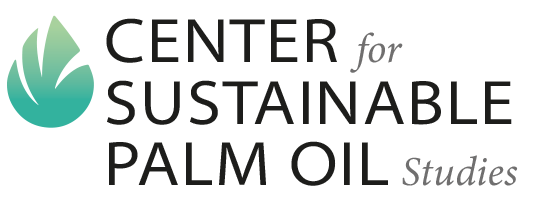
Palm oil-based jet fuels can help the aerospace industry to meet its climate targets and assist the de-carbonization of the sector. However, the inclusion of palm oil producers and their sustainability commitments are vital if such efforts are to succeed. The world’s largest manufacturers should take a closer look at biofuel from palm oil, if they hope to meet their environmental goals. Thus, palm oil-based jet fuels could indeed prove the best way to reduce Co2 emissions from the aviation industry.
In late January 2021, U.S. aircraft manufacturer Boeing announced that within ten years all of its commercial aircraft would be capable of running on biofuels. This effort is part of a bid from Boeing to combat climate change which Boeing describes as the “challenge of our lifetime”. That effort follows a similar pledge from Boeing’s rival Airbus which late last year pledged to develop the world’s first zero-emission commercial aircraft by 2035.
Converting jet engines to run on biodiesel remains the only potentially sustainable energy source for commercial aviation under present technology. If the aerospace industry is keen to meet their climate targets, then a partnership with palm oil producers seems natural.
In 2019, Malaysia announced plans to develop palm-oil based jet fuel over a five-year period and explored the possibility of a Chinese firm investing in the project. In Indonesia, Pertamina the national energy company, is moving forward with plans to commercialize biodiesel from palm oil. In mid-January, Pertamina announced that development of a palm oil-based diesel capability at its largest refinery in central Java. Some 6,000 barrels of “Green Avtur” will be produced daily at the site under Pertamina’s plan.
A second refinery on the island of Sumatra refinery will be much larger than the first and produce 20,000 barrels per day. This fuel will initially include a mixture of 3% refined, bleached and deodorized (RBD) palm oil with traditional jet fuel from petroleum. This is a modest start but, an important one given that is the first step toward a goal of 100% sustainable jet fuel in line with the Indonesian government’s plan for biofuel.
Such efforts from the two world’s largest palm oil producers and the world’s two principal aircraft builders, are in line with the goals of the International Civil Aviation Organization (IATA) to reduce harmful emissions generated by the aerospace industry. The IATA, which is part of the United Nations, hopes to see a 50% reduction in air travel emissions by 2050 in line with U.N. sustainability goals. Globally, this sector produced 2.4 per cent of all CO2 emissions recorded in 2018. The industry currently generates 1.9% of overall greenhouse gas emissions as well.
Certainly, international passenger and air freight have declined during the Covid-19 pandemic but, these temporary drop-offs have not changed the overall trend.
A 2017 research paper from a group of Taiwanese researchers found palm oil-based biodiesel preferable to alternatives. “The resource analysis indicates that oil crops currently grown in the U.S. (such as soybean) have relatively low oil yield when compared to oil crops grown in other, mainly tropical [nations]”. Similarly, a scientific research paper from those same researchers in 2020, investigated the viability of palm oil as a source for “bio jet-fuel.” As early as 2013, the Natural Resources Defense Council (NRDC), an environmental NGO, mentioned palm oil as a source for sustainable jet fuel from biofuel.
In the past efforts to fuel jet engines with biodiesel made from materials have sputtered. In 2009, Qatar Airways conducted a historic civilian passenger flight that used fuel mixed with biodiesel yet failed to commercialize the technology. That same year, ExxonMobil announced efforts to make fuel out of synthetic algae despite scientific studies, which suggests it is far less practical than palm oil. The effort failed.
Similarly, in 2011 the German national carried Lufthansa experimented with a biodiesel program that introduced tallow from animal fats as one biofuel source. All of these efforts proved to be dead ends, impossible to scale or use feedstock from sources that are less sustainable compared to palm oil.
On the regulatory side, new fuel-blending requirements and other regulations will have to change to support this shift. Yet, if Boeing, AirBus, and others want to meet their sustainability goals the production of biofuels from palm oil seems a natural fit considering palm oil production involves less land, fertilizers, energy, and other aggregates as a 2019 article from The Conversation makes clear:
“Oil palm plantations produce 73.5 million tonnes of vegetable oil from a total land area of 27 million hectares worldwide. This might seem like a large area, but the second most important vegetable oil crop, soybean, produces 56 million tonnes from 97 million hectares – more than 3.6 times the oil palm area. This means that oil palm actually uses much less land than other crops, which is one reason why it’s so popular with growers.”
Biofuels are the only path forward to build a sustainable future for the aviation industry. Other clean technologies are simply unfeasible at the moment. For example, current battery technology means that battery powered passenger flights on the scale we are all used to would only work for very small aircrafts solely traveling short distances. Nuclear powered aircraft, while technically possible, would be dangerous for other reasons.
Thus, with millions of tons of palm oil being sustainably produced each year, aviation’s best bet for future jet fuel is being grown right now on palm oil plantations in Southeast Asia.







